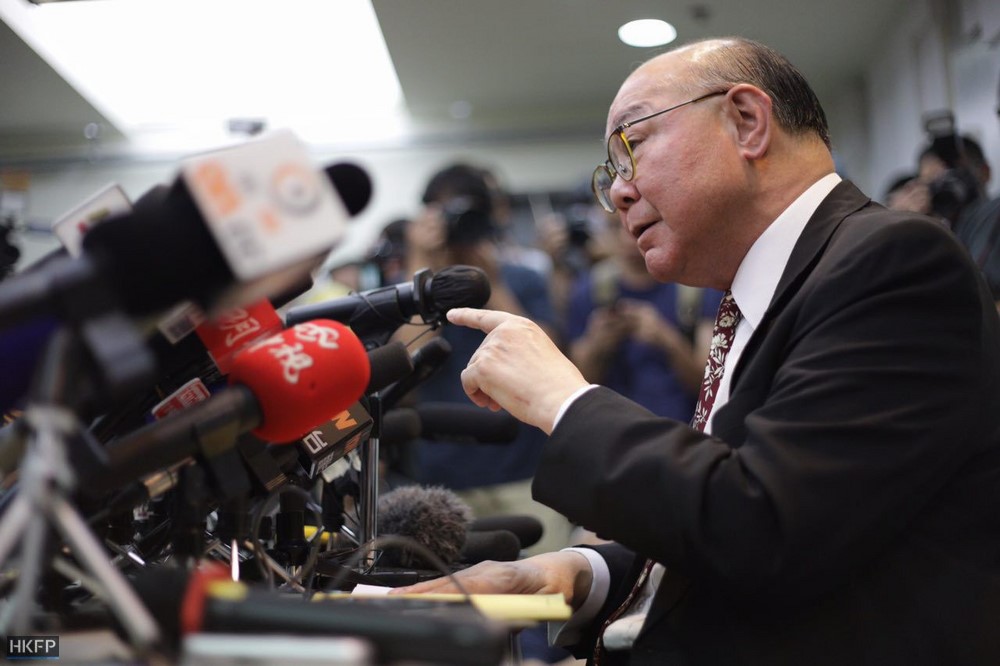Retired judge Woo Kwok-hing, the first contender for Hong Kong’s next leadership race, has criticised Beijing’s violent crackdown on the Tiananmen Square student-led protests in 1989.
Woo said in a Commercial Radio programme on Friday that Beijing should have listened to the students’ demands and negotiated with them, rather than sending in tanks to clamp down on the demonstrations. He said the authorities’ use of force against young protesters was “very inappropriate.”

Woo said that he did not join any protests in Hong Kong against Beijing’s violent crackdown at the time because he was a barrister and tended to be a neutral character.
But he said that if he became the chief executive, he would be willing to convey to Beijing Hongkongers’ demand for justice to victims of the clampdown.
Asked if he worried that his comment would cross Beijing’s bottom line, Woo said: “I can’t foresee the future.”
Woo has also said that he would have joined the 2014 pro-democracy Occupy protests that shut down the territory’s business district if he were young. The Hong Kong government has maintained the position that the Occupy movement was illegal.

Polytechnic University political scientist Chung Kim-wah said that almost all chief executive candidates in the past were asked to comment on the Tiananmen incident. Owing to the sensitive nature of the topic, the candidates often avoid stating a view contrary to Beijing’s position.
Chief Executive Leung Chun-ying signed a joint statement condemning the Communist Party’s action shortly after the crackdown. In 2010, before officially standing as a candidate for Hong Kong’s top job, Leung described the Tiananmen incident as “a tragedy of Chinese people,” but stressed that the “truth” remains unclear.
Leung commented on the incident this year: “Hong Kong is part of China… Hong Kong residents should care about major events in mainland China. We hope to promote political, social and economic progress together with the people of the country.”
